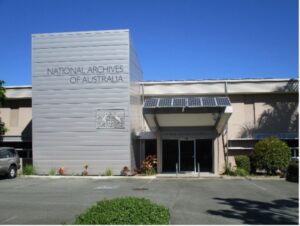The Agony and the Ecstasy of Family History Research.

Michelangelo. Wikimedia Commons – public domain.
Irving Stone wrote The Agony and the Ecstasy: the biographical novel of Michelangelo in 1961. I loved the book and even more so the movie with Charlton Heston as Michelangelo which came out in 1965.
Not that I am comparing myself to Michelangelo, but there is very much a love hate relationship with family history in my opinion.
For someone who has been doing their family history for 46 years I would have to say the ecstasy outweighs the agony. Why else have I continued doing it? Perhaps all the agony has gone now that we live in a digital world. No, it still lurks out there, only in a different form.
Under agony in the past, we could certainly file handwriting letters, waiting for the postman, winding a microfilm machine, updating pedigree charts and family group sheets by hand every time we found new information, waiting for a wet photocopier to dry or even having to fake a sickie to get a day off to go to the archives because they weren’t open at the weekend. How did we ever manage to find as much as we did about our ancestors?
Persistence and patience, not virtues these days when we want to see instant results, not just an index but a digital copy of the original document. We want it now and preferably free because we have all been spoilt by the excellence of Trove especially digitised newspapers.
Trove has led to many ecstatic moments because without digitisation most of us would never have found those family stories in newspapers. In the good old days, it was relatively easy to find birth, death and marriage notices in microfilmed newspapers as we had dates to start with. But everything else was hidden unless we wanted RSI in both arms.

From Microsoft Word stock images.
Ecstasy is when we receive a new email notifying us of more DNA matches only to be followed by the agony of only very small matches or not on the family line you were hoping for.
Returning to ecstasy, what about the excitement of receiving an email from a close relative? Someone answered our email. Unbelievable.
Agony, or is that panic, when your computer fails, and you realise it has been a while since your last backup. Do we all backup our files including our genealogy database on the 1st of each month? Do we get complacent and say it won’t happen to me? Is this where I confess that my backups reside on a hard drive in the same room as my computer? Lucky for us we live in the 21st century and we can save to the Cloud. As I write this, I am looking out the window at a beautiful blue sky with not a cloud in sight. Let’s hope that is not an omen.
Now we have AI looming on our genealogical horizon. Where will that lead us? Do we even want to go there? I have just upgraded to Windows 11 and struggle each night to remember where the turn off the computer button is. Force of habit takes me to the bottom left corner and up springs the weather and the daily news. All we need is time to learn all this new technology, but does it really have to change so often? Do we even have the time to learn new tricks?

National Archives of Australia. Authors personal image.
As a guest blogger for GSQ, I don’t want to bore their readers with my moans and groans, but I have saved my worst agony until last. Can you guess what it is?
State government archives and libraries websites that seem to change all the time – sometimes I have been driven to the Internet Archive to use the old website just to find what I want. There are always broken links and does a one search mentality really help you to find your way around series and items where all the good stuff hides?
Well, I am back to my starting point. I’m still researching my family history and I am still discovering new family stories and records. I can’t see myself stopping anytime soon as I am busy writing the family histories and filling in the gaps that magically open the minute you think you have a final draft. That’s probably another agony but quickly replaced by the ecstasy of knowing my written histories will be preserved in Trove long after I am gone.
Share my ecstasy by checking out NED – that’s the National edeposit facility at the National Library of Australia. It’s free, easy to use and saves time. I can PDF my family histories and deposit ecopies with the library or anywhere else for that matter. No need for expensive printing or trying to sell copies to relatives to recoup the cost. All you need to do is finish writing the family history and then upload it to NED. How easy is that? We should all be ecstatic with, yet another fantastic resource offered by the National Library of Australia.
Does anyone else feel the agony and the ecstasy of family history research?

So much I can relate to Shauna but I sometimes think it was better, albeit slower, in many ways to learn “on the ground” rather than online. I can’t help thinking that the old-timers have a completely different appreciation of Trove. thanks for the tip Re NED. How did I miss that??
Thanks Pauleen. Yes some days I just think there is too much out there now but it has been fascinating seeing the growth of online resources.
Shauna
Writing the family history? How do you write it knowing that new records will become available and I’ll finally be able to find an Irish ancestor in Galway, or Fermanagh! I loved your story Shauna and since I began my family history journey four or five years ago, I have a looooong way to go. With your helpful education seminars that is 🙂
Thanks Dianne. After 46 years I think it is time to at least get a first edition out. Something new will pop up but at least some of it will be written. Thanks for the feedback on my seminars.